Bitcoin Uses A LOT of Energy, China's Cleantech Dominance, and U.S. Renewables Overtake Coal
the Plug #1
Welcome to the 159 new subscribers who recently joined us. If you’re reading this, and haven’t yet subscribed, you can do so below. 👇
This week’s edition includes three sections: 3 exhibits, 2 quotes, and 1 meme.
Read time: ~5 minutes.
Section I: Three Exhibits
1) Bitcoin Uses A LOT of Energy
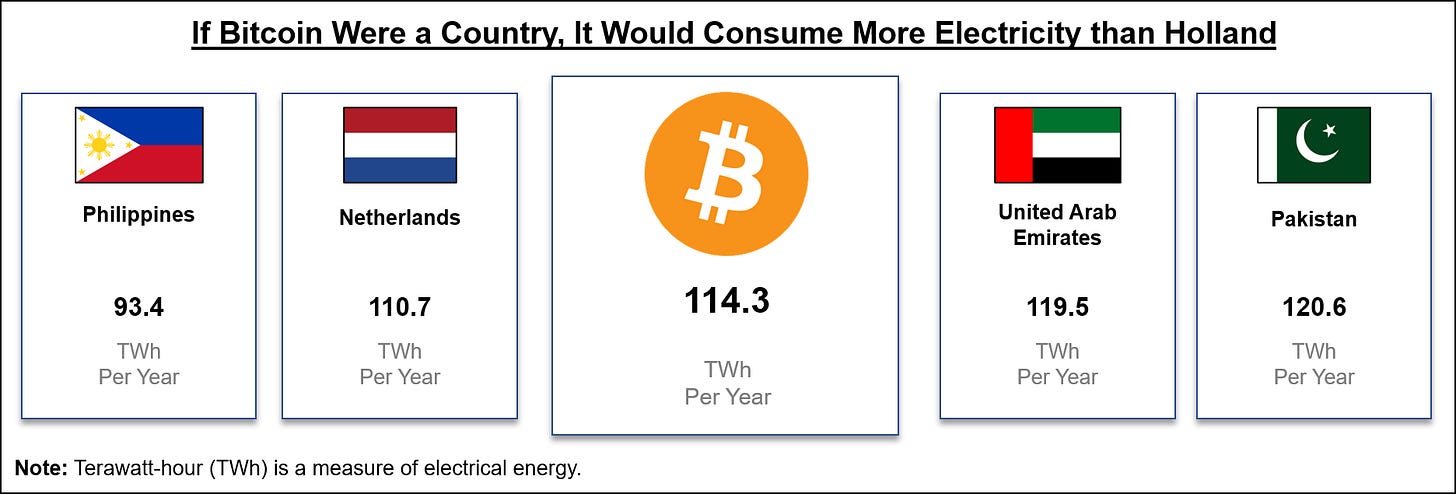
Bitcoin recently came under fire for its energy consumption. Specifically, the carbon emissions generated by that energy consumption, and the resulting impact on climate change.
This criticism is not entirely unfounded, as Bitcoin does use an insane amount of energy. Cambridge University estimates that ~0.5% of all the electricity in the world is currently being used by Bitcoin’s network.
What I believe has gotten lost in this discussion is that energy consumption doesn’t necessarily produce carbon emissions. In theory, all of the energy being used for Bitcoin mining could be generated by carbon-free renewables. Admittedly, that is almost certainly not the case.
Hopefully that hypothetical serves as a friendly reminder that high energy consumption does not necessarily equate to high carbon emissions.
Calculating the carbon emissions generated by Bitcoin’s energy consumption is much more challenging. Reports suggest that somewhere between 39% and 73% of Bitcoin’s energy consumption is carbon-neutral. Said otherwise, no one really has a clue.
2) China is Setting Itself Up to Dominate Our Energy Future
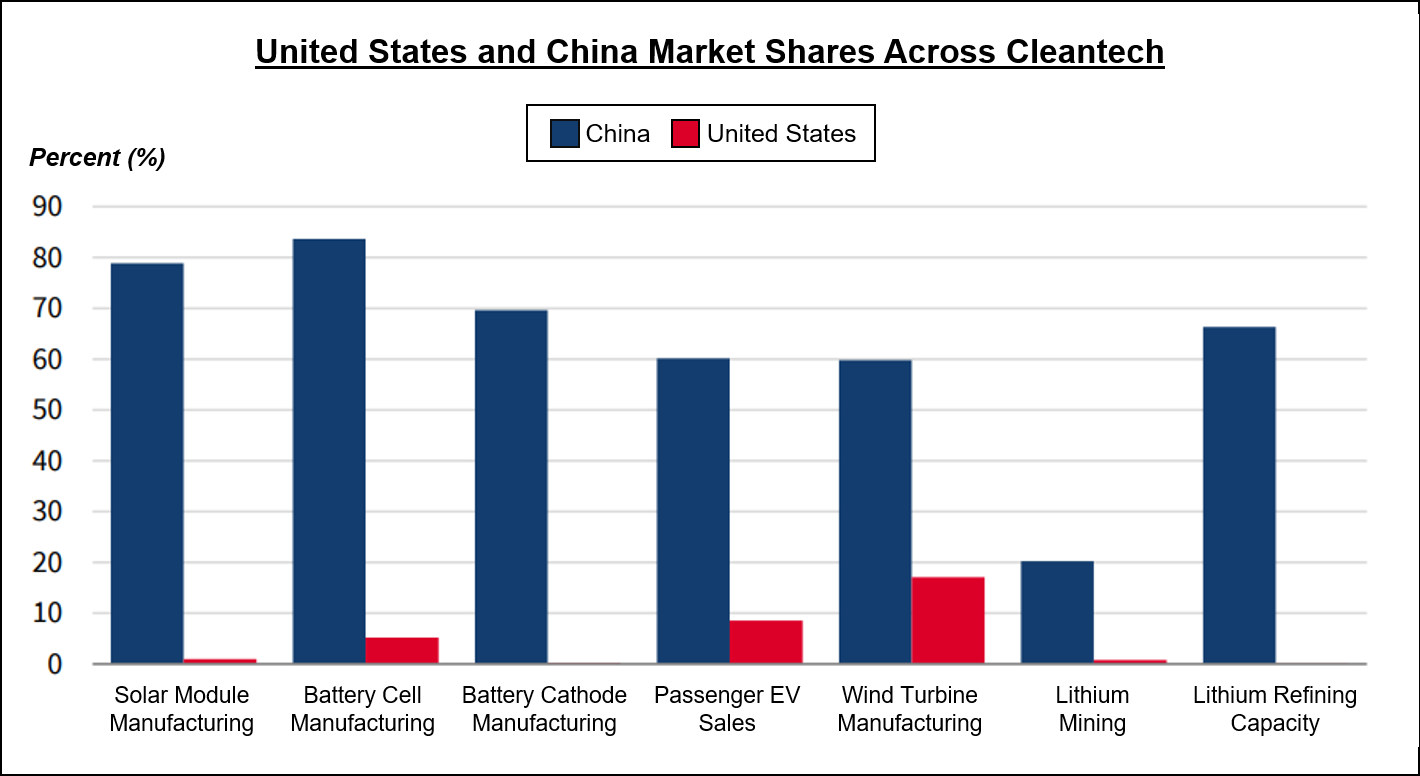
I was shocked to see how dominant Chinese companies are in renewable energy and clean technology (cleantech) markets. Chinese companies currently control ~60% of global wind turbine manufacturing, ~80% of solar module cells, and over 80% of battery cells.
If renewables are central to the future of energy, then China’s stranglehold on the related supply chains will likely give them bargaining power over the rest of the world. In the context of worsening U.S.-China relations, this dynamic is worrisome.
As demand for renewable energy and cleantech grows, will the U.S., and other Western Countries, become increasingly reliant on China to supply energy infrastructure?
3) Coal Takes a Backseat to Renewables, Once Again
Last year, the IEA reported that for the first time in ~130 years, Americans consumed more energy produced by renewables than by coal.
It’s great to see less carbon-intensive renewables generating a larger share of American energy. What I found even more interesting is the role that renewables have played historically. This recent “breakthrough” was not the first time that renewables were more productive than coal.
Renewables have been around for thousands of years. Before becoming a fixture in Holland’s countryside, windmills served a purpose: capturing wind’s energy to grind grain and irrigate farmer’s fields, saving back-breaking work in the process. In fact, windmills likely contributed ~25% of Europe's total industrial energy between 1300 and the adoption of steam and coal during the 19th century.
While renewable infrastructure has shifted from windmills to Eiffel-Tower-sized wind turbines, what hasn’t changed is their purpose - capturing and utilizing the natural, recurring sources of energy generated by the planet.
Section II: Two Quotes
1) The Uncertainty of the Energy Transition
The transition Yergen speaks to in the quote below is the “Energy Transition”. Simply put, this term refers to the global mobilization of our energy systems away from fossil fuel consumption (coal, oil and gas) towards less carbon-intensive energy sources, like renewables.
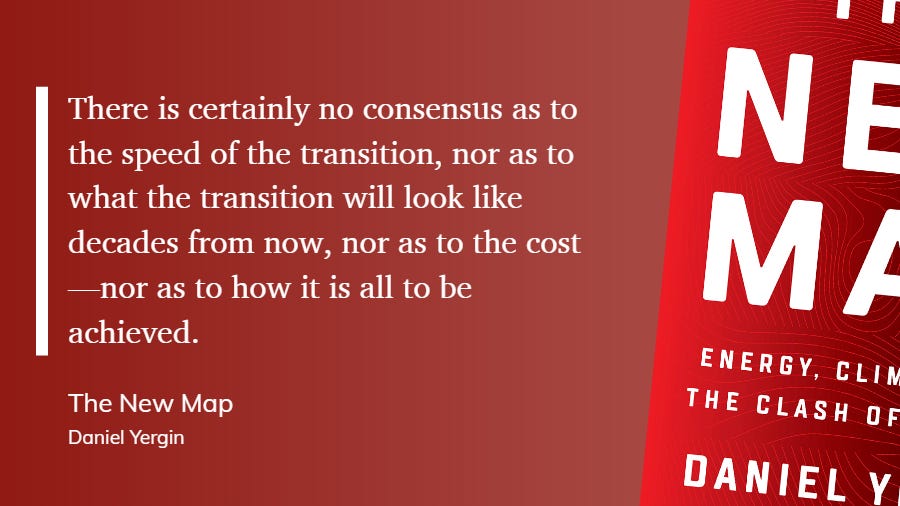
To this day, there remain a lot of questions on how this “energy transition” will actually be achieved. Unfortunately, thoughtful answers are still lacking.
2) Why International Cooperation on Climate Change Is So Hard
This story by Barack Obama about his mother nicely sums up the challenges involved in getting all the countries in the world to agree on a common path towards mitigating the effects of climate change.
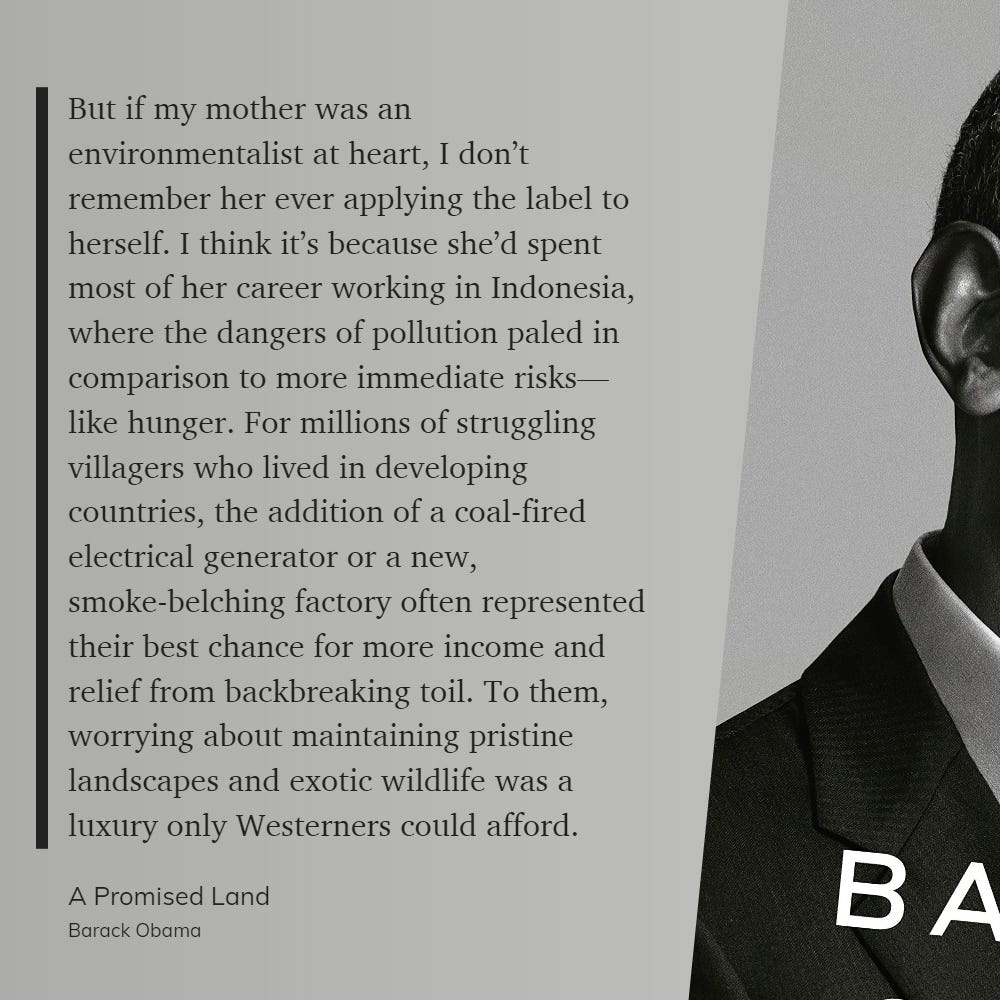
For the citizens of less developed countries, worrying about the long-term threat of rising sea levels is an unaffordable luxury. Instead, short-term concerns around the availability of food and shelter are front of mind. For the governments in (some of) these countries, lifting their citizens out of poverty is equally if not more important than fighting climate change.
Section III: One Meme (Finally)
It’s worth remembering the role that oil majors have played in shaping U.S. foreign policy and conflict in the Middle East over the past century.




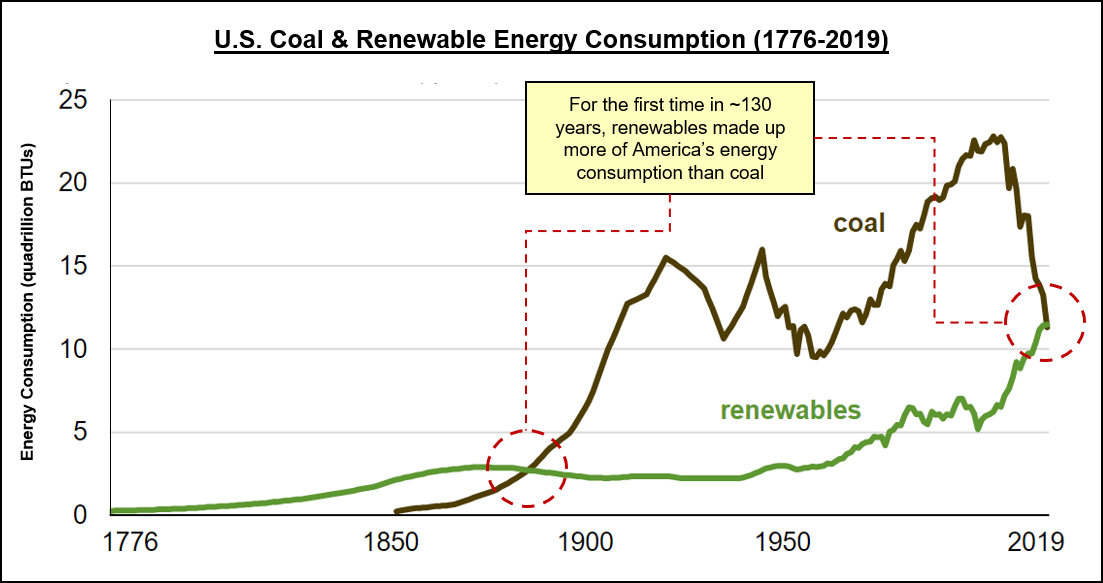
Excellent work! Your writing style on the topic is up there with Smil, Diamond, and Harari.
The beginning of something great!